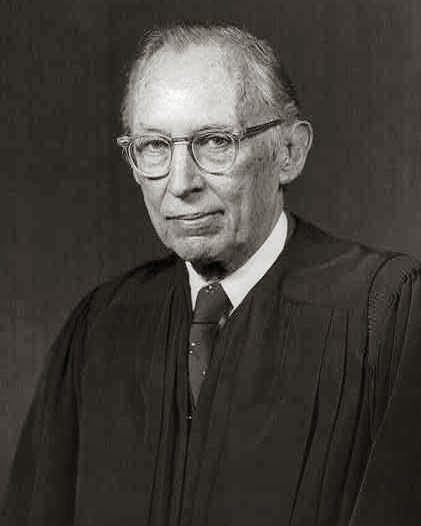This article explores Justice Powell’s vote with the majority in Roe v. Wade. The piece buildsHat tip: Legal Theory Blog
upon the unissued 1970 abortion opinion of Judge Henry J. Friendly, who, although personally pro-choice, concluded that the Fourteenth Amendment does not require abortion freedom. The article also presents research from the Powell Archives at Washington and Lee University School of Law.
Lewis F. Powell (LC)
On its face, Powell’s Roe vote is perplexing due to its inconsistency with his stated philosophy of judicial restraint. Various explanations have been offered, including arguments that a constitutionally protected abortion right is justified (1) as a logical extension of Griswold v. Connecticut, which accorded privacy protection to contraceptive use within marriage; (2) by its “appeal to the future,” i.e., Roe merely expedited the result the country was already steadily approaching; and (3) by empathy for women facing unwanted pregnancies. None of these justifications satisfactorily aligns with Powell’s view of the judicial role. His vote therefore remains baffling.
Justice Powell’s deviation from his own declared principles of restraint is particularly problematic in the context of abortion, perhaps the most intractable legal, religious, moral, and public policy controversy of the last century. Not only did Roe, through an unjustifiably expansive conception of the judicial function, disarm one side politically in this hotly contested dispute, but in doing so the Court also endorsed the other side’s position in the underlying moral debate. Powell’s vote therefore regrettably, but unavoidably, tarnishes his legacy as a proponent of restraint.
Wednesday, June 11, 2014
Calhoun on Powell's Vote in Roe
Samuel Wolfe Calhoun, Washington and Lee University School of Law, has posted Justice Lewis F. Powell's Baffling Vote in Roe v. Wade, which appears in the Washington and Lee Law Review 71 (2014): 925. Here is the abstract:
